What is a decentralized app
- 14 minute read

A dApp is a decentralized application. In ordinary terms, this means that it is a program or software maintained by nodes of a blockchain rather than a standard hierarchical corporation with owners and a board on private servers.
In this article, we are going to explain what a dApp is.
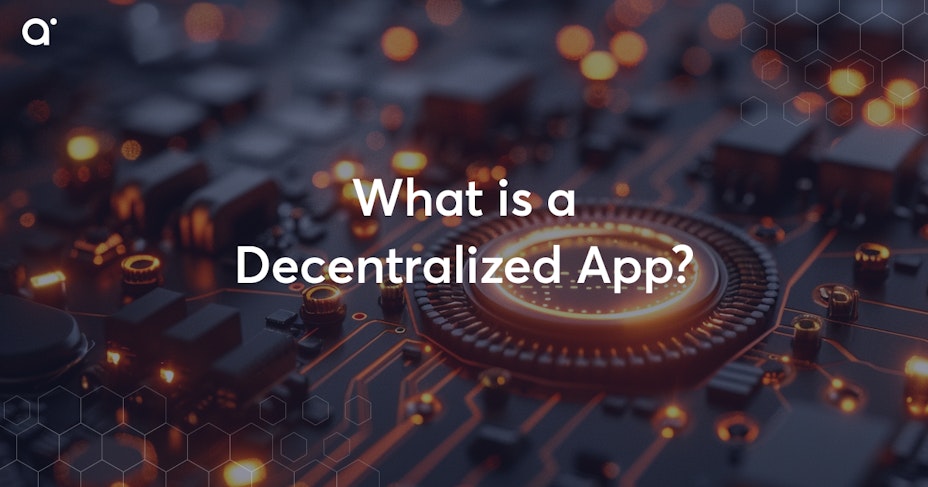
- Decentralized means that a blockchain is maintained by thousands of computers with no central authority
- A dApp works with smart contracts, which are executed when conditions are met
- No one can deny you access to a dApp and decisions are usually made by a DAO through governance tokens
- Peer to peer networks are a form dApp where peers (equals) share files with each other, where a file is downloaded by retrieving a small piece from multiple participants, as in Bittorrent
- Centralized apps like Facebook or Spotify are classic companies with shareholders and a board of directors, where they can deny you access to their private servers if you don't follow their rules
- Advantages of dApps are security, transparency, ownership, innovation, always online, no middlemen, accessibility and anonymity
- Disadvantages of dApps include low scalability, security breaches, app competition, bugs, software troubleshooting, overly technical and regulatory
- A dApp encrypts private data that only the user can access; an app often uses your data for its own gain
- Censorship plays an increasing role in apps, with dApps it cannot
- The most popular dApps are definitely the DeFi apps with around 60% market share
- Almost every app has its counterpart in a dApp
- Scams still occur regularly at dApps
- Regulation of dApps could make them much more expensive and less popular
- Ethereum is still the most popular dApp blockchain
- If there is no standardization and collaboration of dApps, fragmentation of your attention can make them actually unworkable
- With the advent of regulation may come an end to the freedom that has made dApps so popular
Inhoudsopgave
- What is decentralized?
- How do dApps work?
- Benefits of dApps
- Disadvantages of dApps
- Differences between apps and dApps
- What are dApps used for?
- Scams with dApps
- Regulation of dApps
- Ethereum dApps and smart contracts
- The future of dApps
What is decentralized?
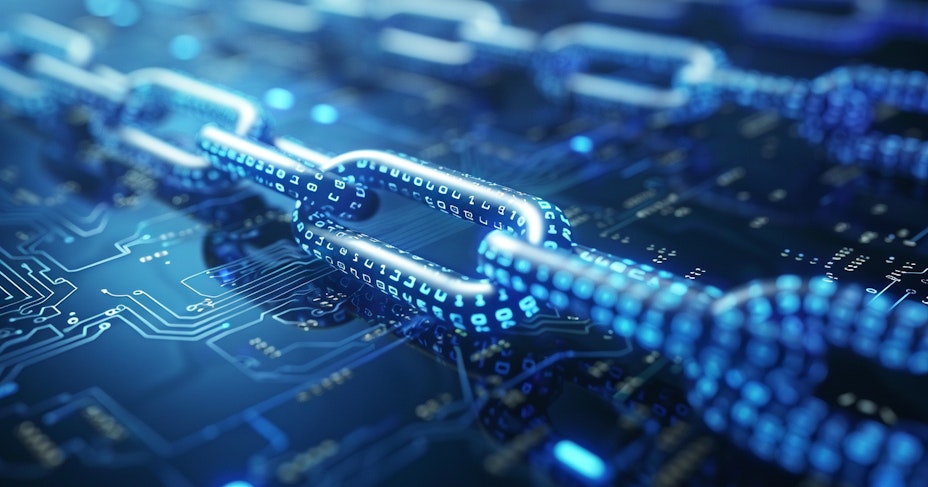
Decentralized means that a blockchain maintained by thousands of computers, so there is no central authority. Full control of such a blockchain and thus power lies with all participants together, unlike the usual corporation with shareholders and a board of directors.
A blockchain is a distributed database maintained by nodes. A standard application is maintained by servers belonging to a centralized company.
How do dApps work?
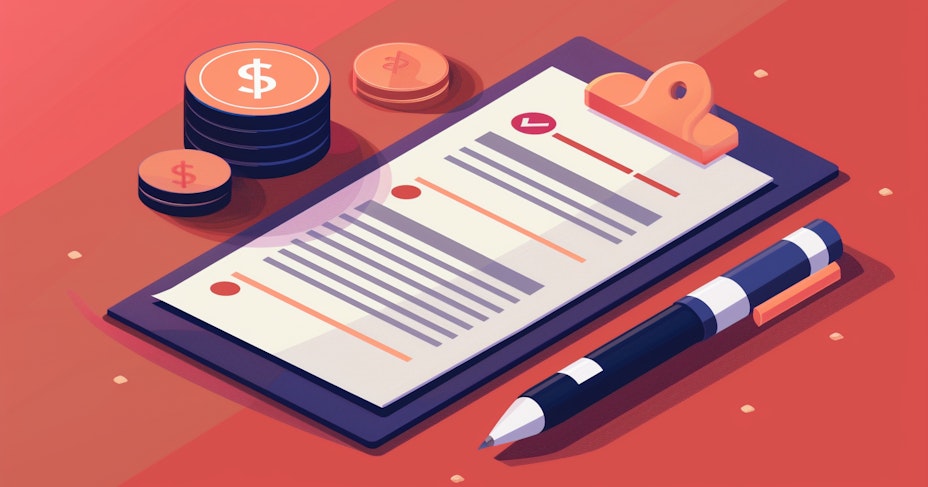
A dApp works with smart contracts , where this contract is executed if certain conditions are met. Once decentralized applications are online, they can hardly be changed. Theoretically, therefore, a dApp can run forever, even if the developers have long since stopped using it. So a dApp can only run on a blockchain on which smart contracts are possible.
All actions within a dApp by a user are performed by a smart contract. The nodes keep track of the blockchain and process all these transactions and data and remember who has what through a distributed database. So all you need to join is to submit a valid action, such as a transaction. No one can deny you access.
So a dApp is a decentralized app, or software program, that is maintained by nodes and often through a DAO governed. A DAO is a Decentralized Autonomous Organization, where everyone gets to vote on the future of a project under certain conditions. Usually you then have to governance tokens have.
Blockchain technology
When you open a dApp, you deal with nodes that independently track the blockchain and transactions the dApp is on. If you take an action that requires you to pay for it with cryptocurrency a smart contract is triggered in the background that automatically processes the payment so you can move on. For example, in a gaming dApp, do you want a NFT purchases then this is all done through a smart contract.
Peer to peer networks
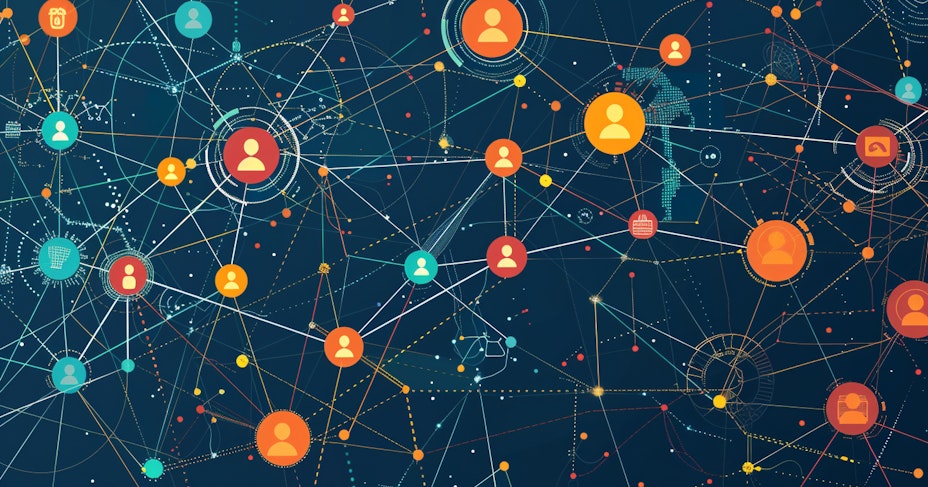
Another form of dApps are peer to peer (P2P) networks. In this, users connect to each other's computers, extending the database in a decentralized way. It is a fairly well-known principle, where you share files P2P with each other. If I mention the examples of Bittorrent and Tor, the penny probably drops, usually these are open source projects, so that a ban of a network can be quickly caught by a restart via a fork .
If you go looking for a file, say a movie, song or book, you can download it, downloading a small piece from several peers (peers), making the total download much shorter than if you were to download the entire file from 1 person.
You can also upload files, which are then added to the database. The more users there are, the easier and faster everything works. Usually these P2P networks get into trouble with centralized authorities like BREIN for copyright infringement (piracy) or get sued by centralized players like Netflix or Disney for non-payment of copyrights and unfair competition.
If a dApp also needs data coming from the world outside the dApp, they will need to use Oracles to upload live data to the dApp, such as Chainlink or TheGraph.
Apps and central authority
If you open a software program, such as an operating system, Facebook, Telegram or a computer game, these are all centralized apps, or software with its own team of developers, shareholders who want to make a profit and executives who largely set the course. Many apps can also deny you access because you haven't paid the dues or haven't followed their rules, such as your next Facebook ban, because you used an unpopular word or a picture they don't like.
Benefits of dApps
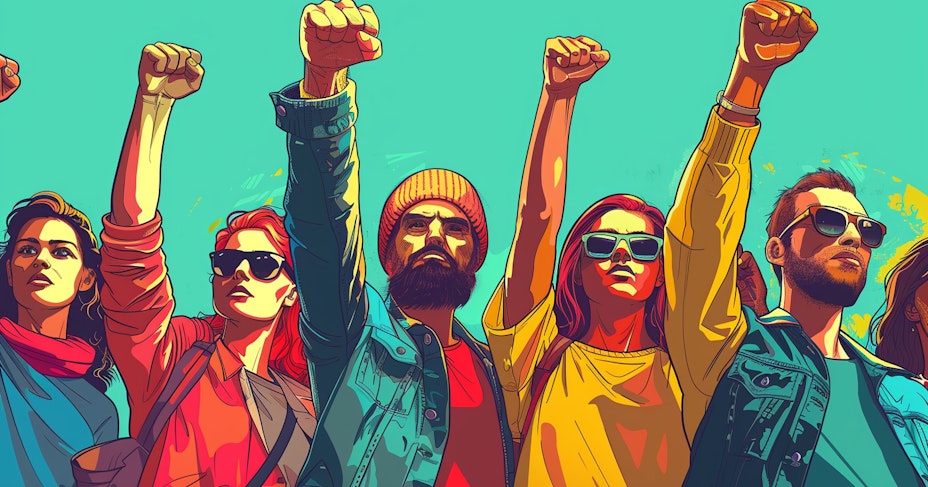
- Safety. Because dApps work decentrally, they cannot be censored, modified or shut down by a single party. Corruption is then impossible.
- Transparency. A blockchain is public and transparent and anyone can use a block explorer to view everything, this prevents fraud and abuse. So anyone can also check the integrity of the blockchain.
- Ownership. When you use a dApp you are in control of your data and digital assets, at Web3 you can use an SSI (Self Sovereign Identity) for this purpose.
- Innovation. Those tired of centralized apps like Facebook, where you can get banned and the like, can get their satisfaction from dApps, where there is free speech. Open source also makes creating new dApps much easier and can promote security, as anyone can see the code and report a bug, although there are also dApps that hide their source code.
- Always online. Because the blockchain is maintained by thousands of computers, it is impossible to take it down except during a large-scale 51% attack which is very rare.
- No middlemen. This can greatly reduce the cost of all kinds of transactions, especially if you normally have to use expensive intermediaries such as notaries, lawyers, brokers or banks. There are no commissions, data harvesting or monthly fees.
- Accessibility. A dApp is permissive; you don't need permission to join, no matter where you are in the world. This democratizes access. All you need is the Internet.
- Anonymity. When working with smart contracts, a transaction will take place between two anonymous parties. Apps ask for your personal data, which means you can be tracked and your data sold to advertisers, in addition to reporting to authorities.
Disadvantages of dApps
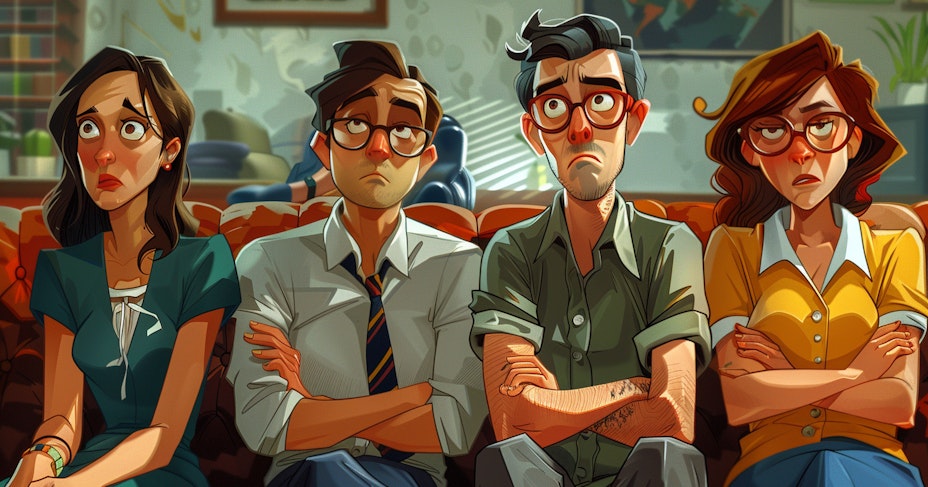
- Low scalability. Especially on crowded networks like Ethereum, you can face severe congestion, like a while ago with CryptoKitties. This can make a blockchain very expensive, make you wait a long time for your transaction, and make a dApp unusable. Even Solana, the speed demon, can face congestion from dApps to the point of crippling the entire blockchain.
- Security breaches. Not every dApp has money to prevent hacks or for professional audits. Over time, though there is less and less capture, hacks are still commonplace.
- Competition from apps. A dApp is often much less intuitive in nature and has a much less beautiful interface than an app. As a result, they get in the way of themselves in terms of usability and usability.
- Bugs. If there has not been an audit, there can be all kinds of bugs in a dApp. Due to the public nature of open source apps, malicious parties can also look to exploit a security hole and steal crypto.
- Solving software problems. If the software needs to be updated, a new dApp may need to be created because of the immutability of smart contracts. Also, you often have to request permission for this first through a DAO. This can take a long time and cost a lot this way.
- Too technical. If you want to use a dApp, you need to know all kinds of things about wallets , cryptocurrency, buying crypto, how to do a transaction and a lot more. When fees can also vary and there can be waiting times this scares off many potential users.
- Regulation. The government and politicians can introduce regulations that go directly against the benefits of dApps. For example, a government can introduce Know Your Customer and anti-money laundering rules, which can thwart the entire DeFi market because of the end of privacy. Also, dApps can be banned in certain jurisdictions and existing companies or individuals can file lawsuits to get a dApp banned.
Differences between apps and dApps
An app has a central governance model, where there is ownership, a board and a hierarchy. A dApp has a decentralized governance model, with nodes that maintain the database and a DAO that usually makes the decisions.
With dApps, users can choose what information they want to share. User data is recorded encrypted on a blockchain with cryptography , where only the user has the private key of this.
Apps and Big Tech
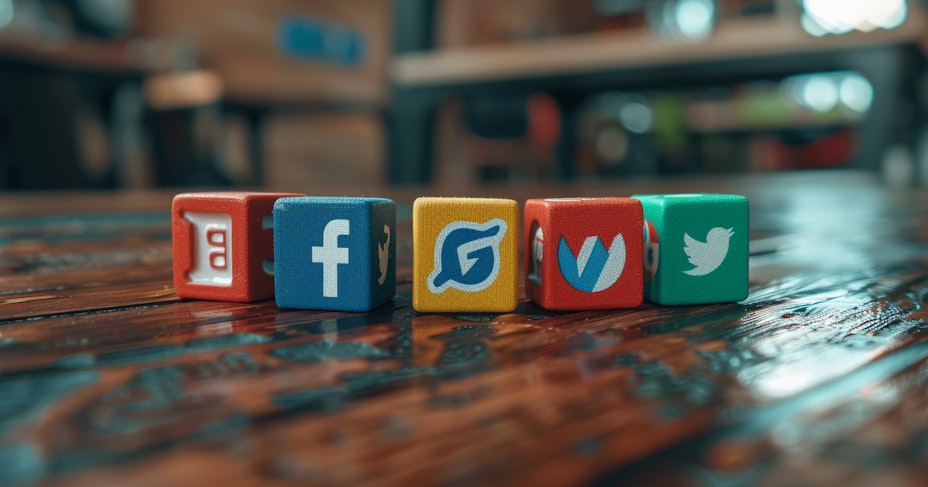
When using a central application, you have to deal with the possibility of data manipulation, selling your personal information, passing your information on to authorities and data breaches. Big Tech keeps so much about you that they can sell a complete profile, including your browsing habits, to companies, then present you with very specific advertisements based on this, which sometimes seems a bit creepy.
Open source versus hidden code
Most dApps are open source, while apps keep their code hidden. Open source dApps usually have more users. Apps you can download online or install them through a data carrier like a DVD or game on a Playstation and the like. Apps can require updates, sometimes changing the rules of the game, with a dApp this is almost impossible, you have to launch a new dApp.
Reliability
Apps can have problems if their servers are hacked or due to other technical problems. They can suffer from what is called a single point of failure, if one or more servers fail their entire app can be offline. A decentralized application does not have this problem because thousands of computers maintain the database, so the failure of a few nodes does not matter, the blockchain can continue to work as usual.
Permission and censorship
You don't need permission to participate in a dApp. You do have this with an app, where you have to sign a legal document of dozens of pages that nobody ever reads, where you say you agree to sell all your personal data (luckily you get to keep your soul) and you don't have a leg to stand on if you want to sue the owners for something. A dApp also has no censorship, no one can deny you access. With an app, you can. You see this more and more with social media, where censorship plays an increasing role.
Financial transactions
With ordinary software programs, you pay with fiat money for its use, or you yourself are the product and your private data is sold, in addition to being shown advertisements. With a dApp, if necessary, you pay for everything with cryptocurrency.
Generally, the cost for this is very low, but there are also dApps where the cost can be huge, especially with play to earn games, which I usually call pay to burn games, because the income is usually poor and the cost of items relatively expensive. Without buying in-game items, you can often only scrape together a few pennies a day. The payback time for purchased items is often so long that it's more like occupational therapy. There are also dApps you can use for free.
Location and data processing
Apps can sometimes be inaccessible regionally, while dApps can normally be used anywhere in the world.
When using an app, you just have to trust that the companies that launched the app will handle your data properly. With a dApp, you don't have that problem because of blockchain encryption.
What are dApps used for?
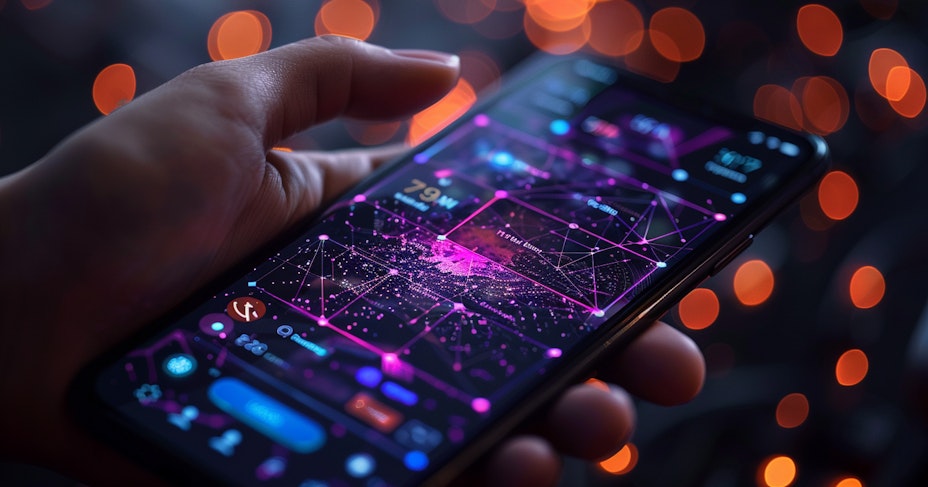
Most commonly, dApps are used for DeFi , such as AAVE and UniSwap, and financial apps, such as MetaMask or Trust Wallet.
The list of different applications is very extensive. For example, you can use dApps for gaming platforms, such as Decentraland or Gala games. The NFT world is served by types of dApps like OpenSea or Magic Eden. In the medical world, Quant, among others, makes itself heard, in supply chain management VeChain.
We can't begin to list all blockchain networks here, but the variety is enormous. Popular topics: Social media apps, identity apps, peer to peer, exchanges, gambling, development, storage, wallets, governance (DAO), energy, insurance, real estate, healthcare, too many to mention. No wonder dApps have become so popular, they cover pretty much all the topics you encounter in the real world as well.
Scams with dApps
As with any form of cryptocurrency, you can also scam users with dApps. We'll name a few.
So you have the ponzi scheme, where new users have to pay the high returns from early investors until no new ones join.
Phishing

Phishing is also quite common with dApps. Most people are familiar with the scare mails telling you that all your funds will be lost if you don't do something right now, like logging into Celsius or something. If you do then you expose yourself to spam, theft and spyware . What you should pay particular attention to is the sender and logic. Why should a particular decentralized app send you anything?
The ICO of decentralized applications
What has been somewhat relegated to the background is the ICO , where investors are promised all sorts of things, but nothing happens, except you lose your money. Nowadays, then again, you have to watch out for presales, where dApps start via a pre-sale to the public, after which nothing happens.
Regulation of dApps
If there are more and more regulations on dApps, it is possible that the decentralized nature will be taken off little by little by the authorities.
For example, the General Data Protection Regulation (GDPR) is one way to use cookies to ensure that location will again play a role in dApps. A DAO can also be forced to allow only votes from a certain area.
The EU's MiCA law
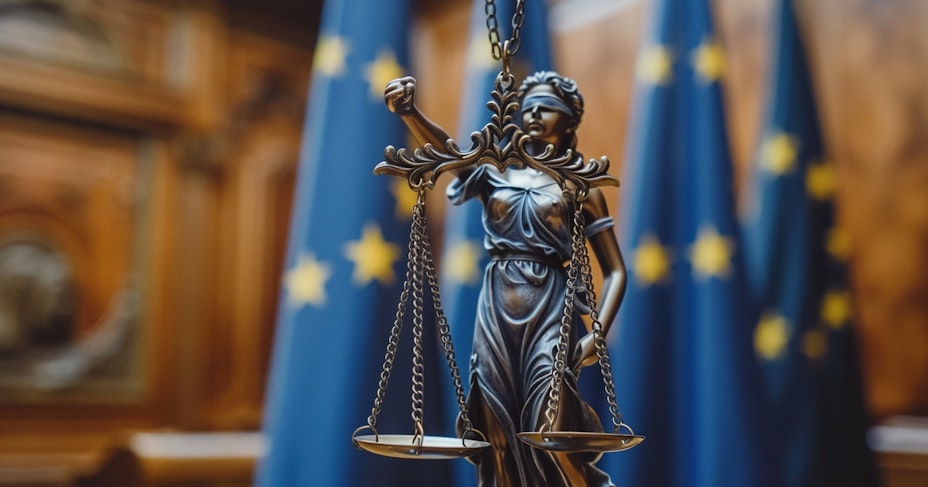
When funding a dApp, it may face securities or securities regulation, as well as Know Your Customer and anti-money laundering regulation. This puts censorship and the end of anonymity of dApps and smart contracts on the map. The MiCA law of the EU is a good example of this, where the user is better protected, but the creator has to incur high costs, which he then has to pass on to the customer. This makes the dApp more expensive and may result in the waning popularity of such a dApp.
Ethereum dApps and smart contracts
Ethereum is very popular when it comes to the number of dApps. That's because they were the first to use smart contracts, which made them incredibly popular in the heyday of DeFi and the ICO and have never relinquished that lead. Despite stiff competition, they are still by far the most popular blockchain for dApps, although Solana is coming along at a brisk pace.
Ethereum is always evolving and has a very robust system with their Ethereum Virtual Machine . Programmers who know a bit about programming languages such as JavaScript or the C languages can soon put together a dApp on Ethereum.
The future of dApps
The most important part of increasing the popularity of dApps is scalability and affordability. If scalability is addressed with new techniques, such as sharding or Danksharding this can make a dApp much more accessible, as it increases speed and reduces cost.
Use value of dApps
It is quite possible that certain forms of dApps will become much more successful than others. The most important feature of a dApp is its utility value. For example, a DeFi dApp for financial products is a powerful way to avoid expensive intermediaries and maintain your privacy. A medical dApp can protect highly sensitive data from unwanted viewing by market participants such as insurers. Companies and consumers can also benefit greatly from logistics dApps, which can track the authenticity and safety of products such as medicines and branded products.
Fragmentation of your attention
If dApps become as fast as regular apps and costs remain low, the dApp has a chance to beat the app in terms of popularity. This does require a lot more standardization, because nobody wants to work with 100 dApps, wallets, cryptocurrencies and everything else you need with a dApp to make it work properly. Because that sounds more like a nightmare than freedom, joy, which is what you should expect from a popular dApp anyway. So a dApp that can do everything seems to me to be the way to go.
Regulation can vehemently bother the dApp
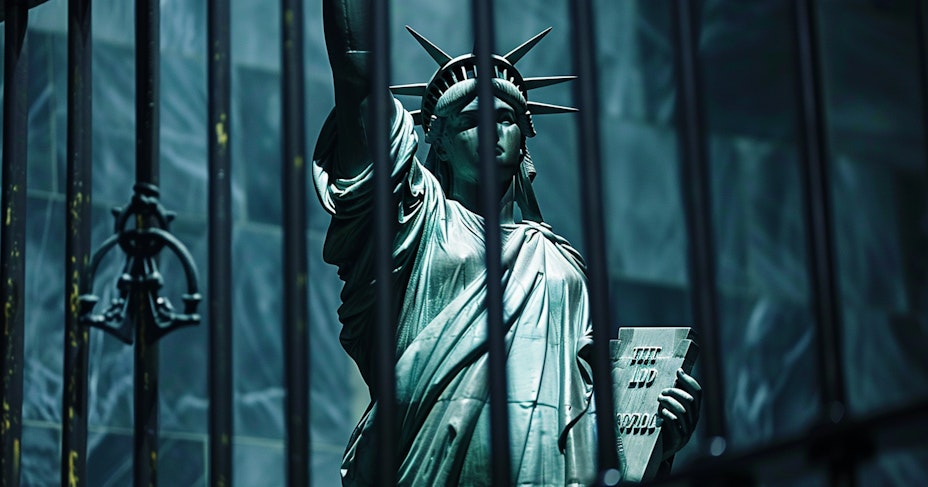
Regulation can end the popularity of dApps through prohibitions and commandments. Not only can it greatly reduce the usability of dApps and end privacy, but it can also greatly increase the cost of using them. Furthermore, there may be another ban on a dApp and certain dApps may no longer be able to sustain the cost and become too expensive, resulting in their loss or not being made anymore.
"Decentralization is the dream of the masses and the nightmare of those with power and money."


